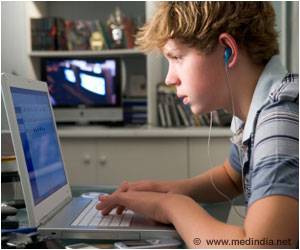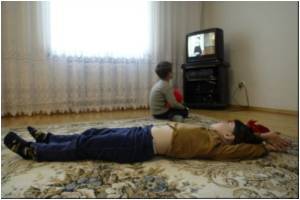Before bed, screen times have shown an association with lesser sleep and higher Body mass index in kids

TOP INSIGHT
Children who reported watching TV or playing video games before bed got an average of 30 minutes less sleep than those who did not, while kids who used their phone or a computer before bed averaged an hour less of sleep than those who did not.
"We saw technology before bed being associated with less sleep and higher BMIs," Fuller said. "We also saw this technology use being associated with more fatigue in the morning, which circling back, is another risk factor for higher BMIs. So we're seeing a loop pattern forming."
Previous research has found associations between more technology use and less sleep, more inattention, and higher BMIs in adolescents. But even though research shows that 40 percent of children have cell phones by fifth grade, the researchers said not as much was known about the effects of technology on a younger population.
Fuller said that because sleep is so critical to a child's development, she was interested in learning more about the connection between screen time right before bed and how well those children slept, as well as how it affected other aspects of their health.
The researchers asked the parents of 234 children between the ages of 8 and 17 years about their kids' sleep and technology habits. The parents provided information about their children's' technology habits, sleep patterns, nutrition and activity. The researchers also asked the parents to further specify whether their children were using cell phones, computers, video games or television during their technology time.
"We found an association between higher BMIs and an increase in technology use, and also that children who reported more technology use at bedtime were associated with less sleep at night," Fuller said. "These children were also more likely to be tired in the morning, which is also a risk factor for higher BMIs."
There was also an association between using all four types of technology before bed and increased cell phone use at night, such as waking up to text someone, with watching TV resulting in the highest odds.
Fuller said the results support new recommendations from the American Academy of Pediatrics (AAP) about screen time for children. The AAP recommends that parents create boundaries around technology use, such as requiring their kids to put away their devices during meal times and keeping phones out of bedrooms at night.
Dr. Marsha Novick, associate professor of pediatrics and family and community medicine, said that while more research is needed to determine whether multiple devices at bedtime results in worse sleep than just one device, the study can help pediatricians talk to parents about the use of technology.
"Although there are many benefits to using technology, pediatricians may want to counsel parents about limiting technology for their kids, particularly at bedtime, to promote healthy childhood development and mental health," Novick said.
Source-Eurekalert
 MEDINDIA
MEDINDIA




 Email
Email










